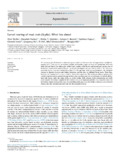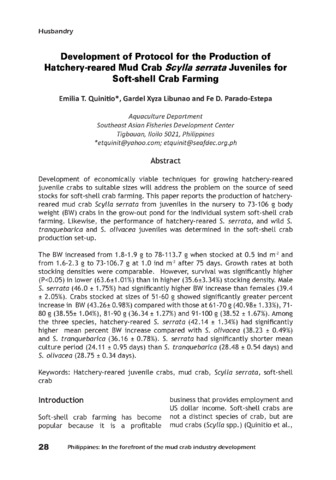| dc.description.abstract | Rhizocephalans are a group of parasitic barnacles that infect crustacean hosts, significantly altering their morphology, physiology, and behavior. Due to the lack of relevant knowledge, infected crabs can be inadvertently introduced into crustacean aquaculture systems, potentially causing irreversible damage. Therefore, the prevention, treatment, and dissemination of knowledge related to rhizocephalans are crucial. This study summarizes the distribution of common rhizocephalans and their hosts in Southeast Asia. One representative rhizocephalan parasite, Sacculina beauforti, has detrimental effects on the economically important orange mud crab Scylla olivacea, exemplifying how these parasites can turn crabs into “zombies.” The study details the journey of a tiny barnacle, from the initial infection of the host to preparing the ‘incubator,’ and discusses the potential impacts of rhizocephalan infection on aquaculture and fisheries, including broodstock selection, crab culture, soft-shell crab production, and breeding. Additionally, the study reviews existing methods for diagnosing infected crabs, such as morphological observations, established discriminant function equations, and molecular screening. Rhizocephalan infections pose significant risks to the aquaculture of non-fully cultured crustacean species. Once detected, infected crabs should be immediately culled and removed to prevent further spread. In conclusion, this understanding has enabled us to develop a series of recommendations focusing on future research, management, and aquaculture development efforts. | en |




